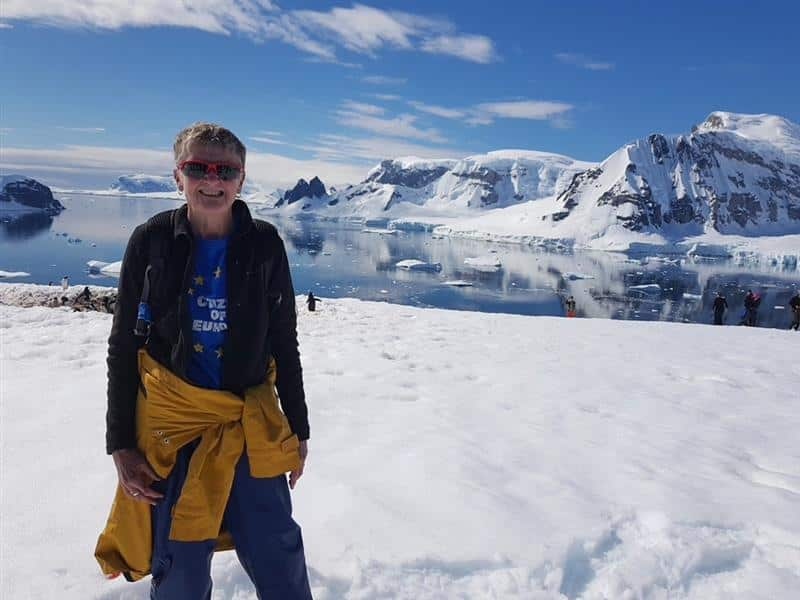Insight finds out who's thriving after work and who's not. Watch Retirement Ready or Not Tuesday July 27 at 8:30pm on SBS and On Demand.
Kate Rowe had a long and varied working life from a decade in the media to medical administration in large Sydney hospitals. By the time she was 60 she started to contemplate slowing down at work, pulling back from full-time to part-time. She thought it was time to embark on her dream of having a sea change.
“I worked at a major hospital for about nine years in medical admin and I lost that job," Kate told Insight.
"I'd previously been up to Noosa as a triathlete ... I fell in love with Noosa, I thought this will be a nice place to retire, you know, the sea change thing and then when I lost my job I got a bit of a pay-out and I thought right, this is it, this is the time."
Kate packed up her house in Sydney and took her cat with her to Noosa. She expected to pick up plenty of part-time work in medical administration at local hospitals and clinics thinking her experience would be valued. But that didn’t turn out to be the case.
“I spent six months there and in that six months I didn't get one day's work, not one, despite all of the work that I did," she said.
"I ended up going into a clinical depression and I remember I was on Noosa beach at Christmas Day ... I lay on my back and I just burst into tears, I just thought what has happened? What have I done? Because my super was just going out the window because I didn't have any work."

Kate had to register at Centrelink and received $100 a week as she searched for work. However, her rent in Noosa was $350 a week so after six months the situation was unsustainable as she found she was digging deep into her super. The whole experience cost her $60,000 out of her super so she moved back to Sydney.
“The last two years of my working life in Sydney I got some part-time work, but then it was casual, and then I started to not get work anymore.”
Kate put this down to ageism because at that time she was 63.
“I don’t care what the government says, it’s hard to get work when you are an older person."
Kate alleges she did receive one job, only to be told the next day they had decided to give it to a student as they would pay them less.

A new report released by the Australian Human Rights Commission (AHRC) has found most Australians (90 per cent) agree ageism exists in Australia, with 83 per cent agreeing ageism is a problem and 65 per cent saying it affects people of all ages.
Middle-aged people said they were usually turned down for a job, and those over 60 experienced ageism as being 'helped' without being asked.
The research found eight key findings, including that ageism exists in Australia, even if we are not consciously aware of it, and that ageism affects Australians across the adult lifespan.
Other research published this year by the AHRC and Australian Human Resources Institute shows almost half of Australian businesses say they are reluctant to recruit older workers.
The report, called Employing and Retaining Older Workers* surveyed 604 human resources professionals and business leaders. The report found 46.7 per cent of respondents said their organisation would be reluctant to recruit workers over a certain age, although the specific age barrier varied among respondents.
The report also found the age at which workers are considered ‘older’ by the HR community is becoming progressively younger.
Twenty-eight per cent of respondents defined an “older worker” as 61 to 65 years old, making it the most commonly nominated age range.
However, almost 17 per cent classified older workers as 51 to 54 years old in 2021, a six-percentage-point jump since 2018.
At the same time, many of us plan to work longer with the majority of respondents expecting to retire between 66-70 years of age (39.6 per cent), an increase of 7.7 per cent from 2014. The number expecting to retire between 71-75 years of age has also grown, from 10.6 per cent to 17.4 per cent since 2014.
Kate said she would’ve continued to work longer if ageism had not come into play.
“When they said we’ve decided to employ a student to me that was it, I’m not going to continue being hit on the head with a hammer. I really do think that ageism, like sexism and misogyny, it’s here. You can say it’s not but it is here.”
Insight is Australia's leading forum for debate and powerful first-person stories offering a unique perspective on the way we live. Read more about Insight
Have a story or comment? Contact Us


